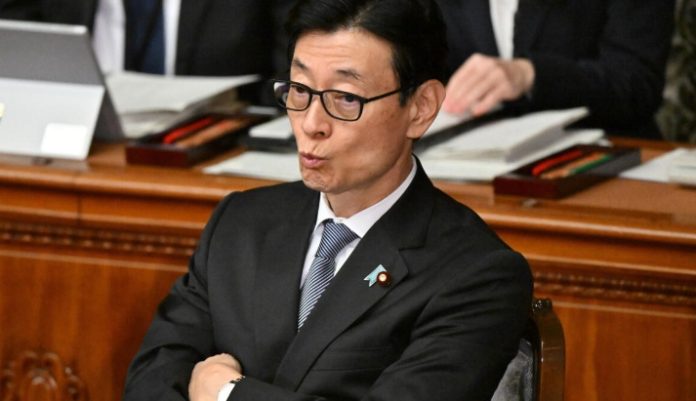Four Japanese ministers resigned on Thursday amid allegations of unaccounted funds and kickbacks in the ruling party hours before their replacements were appointed.
Chief Cabinet Secretary Hirokazu Matsuno, Interior and Communications Minister Suzuki Junji, Agriculture, Forestry and Fisheries Minister Miyashita Ichiro and government spokesman and Economy, Trade and Industry Minister Yasutoshi Nishimura submitted their resignations to Prime Minister Fumio Kishida on Thursday.
Hours before the mass resignations, Kishida confirmed his plan to replace members of his cabinet amid an investigation into kickbacks received by senior government and ruling Liberal Democratic Party officials.
The scandal has sparked a crisis in the already beleaguered Kishida administration, whose approval ratings are at their lowest. At a news conference after submitting all four resignations, Matsuno said he realised the public distrust of politics caused by the affair.
Former Foreign Minister Yoshimasa Hayashi will replace Matsuno as spokesman, former Justice Minister Ken Saito will take over as economy and trade minister, Takeaki Matsumoto will return as interior minister after being replaced in the latest cabinet reshuffle, and former minister in charge of regional revitalisation Tetsushi Sakamoto will take over agriculture.
Prosecutors are investigating proceeds from fundraising events organised by factions or political groups of the ruling party that went to senior officials who allegedly failed to declare them in violation of the country’s laws.
Local media reported that the kickbacks totalled at least 500 million yen ($3.53 million) and were distributed among dozens of members of a major LDP faction.
Other important LDP figures affected by the scandal include Hiroshige Seko, secretary-general of the upper house of parliament, Koichi Hagiuda, head of election strategy, and former Olympic minister Seiko Hashimoto. Changes are also expected among the party’s top officials, some of whom have already announced their resignations.
Investigators are looking into whether Kishida’s faction is also involved, according to media reports. The group is suspected of failing to declare more than ¥20m in the three years to 2020, the Asahi Shimbun newspaper reported.
Japanese political parties routinely organise events attended by supporters to raise funds, with the profits ploughed back into campaigning.
Holding gatherings to raise funds is legal. Members of the Abe faction reportedly exceeded their ticket sales quotas and pocketed the difference. That, too, is not a crime. But their alleged failure to record the sums in official statements would be a violation of political funding laws.
